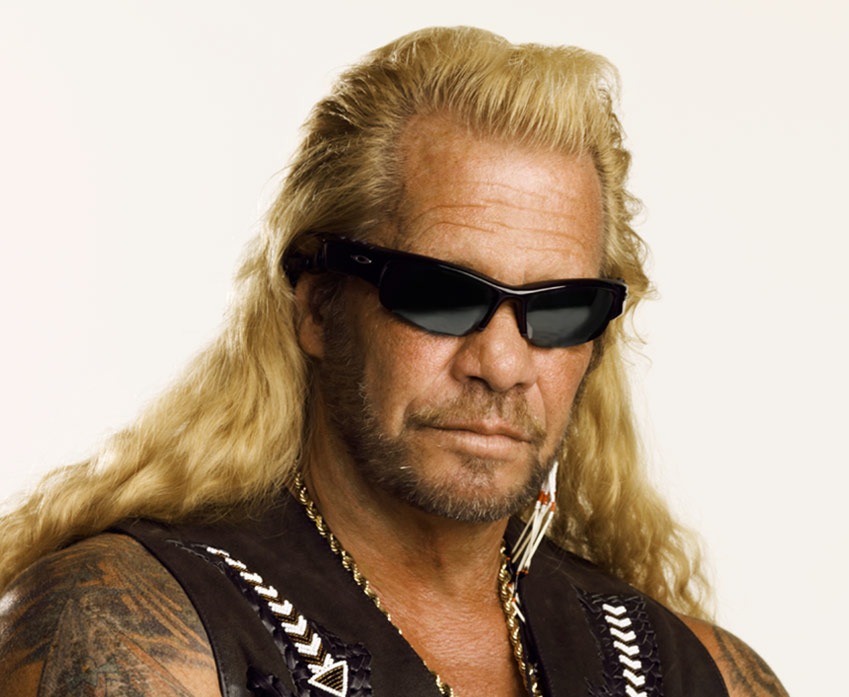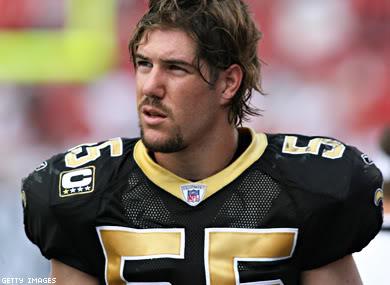 Browns Archive
Browns Archive  Lingering Items--Bounty Hunter Edition
Lingering Items--Bounty Hunter Edition
 The NFL, which is no stranger to scandal anyway, has another full fledged problem on its hands. After taking longer to investigate the New Orleans Saints' bounty system then the Warren Commission took to investigate the assassination of the John F. Kennedy, the NFL concluded what had long been assumed anyway. NFL players are motivated by money to the point that they'd injure their opponents for more of it.
The NFL, which is no stranger to scandal anyway, has another full fledged problem on its hands. After taking longer to investigate the New Orleans Saints' bounty system then the Warren Commission took to investigate the assassination of the John F. Kennedy, the NFL concluded what had long been assumed anyway. NFL players are motivated by money to the point that they'd injure their opponents for more of it.
But the subtle subversion of the salary cap system, not to mention the tax laws, by paying defensive players to injure opposing players, is the least of the NFL's problems. Far more of a problem is the pending lawsuits from dozens of former players who are claiming that the NFL did little to protect them from concussions and how these revelations play into that.
It's one thing for a group of defensive players to pool their money and reward each other for particularly vicious hits. It's a whole other matter when the activity was institutionally sponsored, as it appeared it was in New Orleans. That kind of thing tends to get the attention of plaintiffs lawyers.
And if this kind of unofficially official activity was present elsewhere around the league, and there seems to be evidence that it was, how can the NFL adequately defend itself from allegations that it was doing its level best to protect the players from unnecessary injuries?
The "Spygate" incident was a public relations nightmare for the NFL but it wasn't team sponsored assaults on opposing players. But this Bountygate business creates a boatload of legal issues for the NFL just as it's trying to defend itself from claims that it looked the other way as players came up lame over the years.
Gregg Williams, the defensive coordinator for the Saints in 2009, the year in which this activity appears to have peaked, has acknowledged that he oversaw this "reward" system not just in New Orleans but pretty much everywhere else he's coached. That may tell you plenty about what a lousy coach Williams really is, but it also tells you plenty about why certain ex-players, those still suffering from the effects of all those concussions for example, feel the way they do about the league.
Williams may be portrayed as just some rogue coach and if I'm the NFL's lawyers, I'm arguing just that. But the fact remains that Williams was a member of his team's management and he had the power if not to fire players directly, to effectively recommend them for that fate. If Williams is telling players to injure opponents and is paying them to do it, what choice does a player have not to participate?
If you follow the Twitter feeds of NFL players, it's been an interesting few days. Just as they did for James Harrison, you have a number of players defending the Saints' actions as just a part of the game. That should be expected, mainly because many players aren't particularly deep thinkers.
But just as there are those that see this as no big deal, there are plenty that feel differently and I suspect most of them go by another name, "plaintiff." They're the ones suing the league who now have powerful evidence in the form of the league's own report to help make their case.
The NFL knows it has a problem on its hands and though it should be given credit for announcing the results publicly, the low key approach to this situation as compared to its bombastic response to "Spygate" is directly attributable to the vast difference between the two situations.
"Spygate" was incredibly stupid and overblown. The NFL acted as if stealing another team's signals, which is at the heart of the allegations, impacted the integrity of the game, despite the fact that no one gives a second thought, let alone raises integrity issues, when baseball does the same thing night after night.
"Bountygate" on the other hand spells real trouble for the NFL and they know it. Because the NFL can't look as if it condones sponsored violence, except of the more typical variety for which it charges fans a small ransom, it will come down much harder on the Saints and their management then they did on the Patriots and its management in Spygate. Expect significant loss of draft picks and significant fines. If Williams is allowed to coach in the NFL this coming season, it will be a miracle.
The NFL really has no other choice. If it is ever going to defend itself against accusations that it is not indifferent to player injuries, it actually has to not be indifferent to player injuries.
When the Browns allowed Colt McCoy back on the field without adequately checking whether he was still functioning adequately, it didn't help the league's cause. But that was a mostly isolated incident. Long term sponsorship of brutal, incentivized head-hunting is a whole different matter. And the fact that it took this long for the NFL to root it out doesn't much help their cause either.
**
 There's a local angle to this Bountygate and it involves one of the team's best defensive players, the self-aggrandizing Scott Fujita.
There's a local angle to this Bountygate and it involves one of the team's best defensive players, the self-aggrandizing Scott Fujita.
As reported initially by Sports Illustrated's Peter King, Fujita is more than implicated in Bountygate. According to King, Fujita was one of a handful of Saints defensive players to pledge between $2,000 and $10,000 to the overall bounty pool, something Fujita both admits and denies. Yes to the pool, no to the whole injury aspect of the pool.
While King talks about all the good Fujita has done for Steve Gleason, a former player suffering from ALS as well as the work put Fujita put in on the NFL's labor council, that doesn't lessen the gravity of Fujita's involvement here. If anything, it enhances it.
Fujita, who railed against the NFL this past offseason for all manner of sins, including what he termed was its lack of concern over safety issues, is nothing if not a hypocrite. While he was chidling the NFL for its approach, he knew full well that he was accomplice in it, not so much because he was a hard-nosed player but because he allegedly sanctioned with his own money bounty hunting on opposing players.
Off the field and completely away from football, Fujita may be a wonderful sort. But on it or near it is a different story. What we really know about Fujita in that regard is that he's not just a hypocrite. He's a phony. At no point did Fujita come to Colt McCoy's defense publicly when James Harrison deliberately tried to sever his head. Instead Fujita took to criticizing team management and NFL brass for not having good enough procedures in place to deal with concussions, ignoring the fact that McCoy's concussion was completely preventable. Maybe Fujita supported McCoy behind the scenes. I hope so. But given Fujita's apparent role in Bountygate, his not backing McCoy publicly at the expense of Harrison now makes far more sense.
Screaming about solutions when you're part of the problem isn't the best recipe for success. But there's more.
We also know that Fujita isn't just a hypocrite and a phony. He's also a coward. During the heat of the NFL's labor dispute, Fujita had his wife "write" (most likely ghostwrite) a column for The Nation in which she excoriated NFL owners for exploiting the players as mere pawns in a game of high commerce. (See my column here on this subject) She railed about their relative indifference to the care these fat cats showed for injured players to underscore her point.
Maybe she wrote those eloquent words without knowing that her own husband was effectively undermining her arguments by allegedly helping to incent his co-workers to injure opponents through whatever means possible, late hits or cheap hits be damned. But Fujita let his wife publish those comments knowing full well his role in all of this, which is a pretty cowardly act for a guy who paints himself as one of the NFL's tough guys.
There is much that can and should be done to reduce injuries in the NFL. As much as I love the game, it's frustrating each year to see teams decimated by injuries. Playoffs and Super Bowls increasingly aren't won by the best teams but the least injured. So purely from an entertainment value, the quality of the NFL's product is repeatedly compromised by the absence of so many players nursing injuries.
But the far bigger concern is the lingering effects of those injuries. You need only to meet retired players to understand how all those hits add up to permanent damage. It may be the mentality of NFL players that injuries are part of the game and must be endured. But is it really the mentality of NFL players that unnecessary injuries are a part of the game?
And while the primary obligation may fall on the NFL to find the best ways to reduce injuries, through a combination of technology and rules, it's all for naught when players find ways around it just to earn a few extra bucks from a bounty pool.
If it turns out that Fujita actively participated in this system while in New Orleans, he should be punished and I wouldn't care if it were for an entire season. The near term hit to the Browns is worth it if it brings this kind of activity to an end.
Indeed, if it does turn out the Fujita was one of the ringleaders, then considering that the Browns are trying to rebuild with better players of higher character, cutting Fujita would certainly qualify as addition by subtraction.
**
With the Bountygate scandal is expanding to other teams, this weeks' question to ponder: Given the relatively weak performances by past Browns defenses, is it possible their was an organized effort within the Browns to pay players for deliberately trying not to hurt opposing players?
- NBA Announces 2013-2014 Schedule
- Browns Ink Sharknado
- Sharknado A No-Show For Rookie Camp
- Trent Richardson Out Until Training Camp
- Browns Sign Brandon Jackson
- Carrasco Suspended Eight Games
- Browns Add to Wide Receiver Depth with David Nelson
- Browns Need to Learn from Past Draft Mistakes
- Browns Release Chris Gocong and Usama Young
- Browns Missing on Grimes Disappointing, But Not The End
The TCF Forums
- Movies coming out
rebelwithoutaclue (Tuesday, January 21 2014 12:56 PM) - 2015 Recruiting
jclvd_23 (Tuesday, January 21 2014 12:38 PM) - The 2014 Offseason Thread
Larvell Blanks (Tuesday, January 21 2014 12:25 PM) - Official- Browns Coach Search/Rumors
Larvell Blanks (Tuesday, January 21 2014 11:53 AM) - Chris Grant's first 3 drafts
Kingpin74 (Tuesday, January 21 2014 10:13 AM) - Mike Brown
YahooFanChicago (Monday, January 20 2014 11:15 PM) - 2014 Hoops Hockey Hijinx
jpd1224 (Monday, January 20 2014 4:44 PM) - 2014 Recruiting
jclvd_23 (Monday, January 20 2014 2:26 PM) - Wish List - #4 Pick
Hikohadon (Monday, January 20 2014 1:26 PM) - #1 overall pick Anthony Bennett
TouchEmAllTime (Sunday, January 19 2014 1:28 PM)


